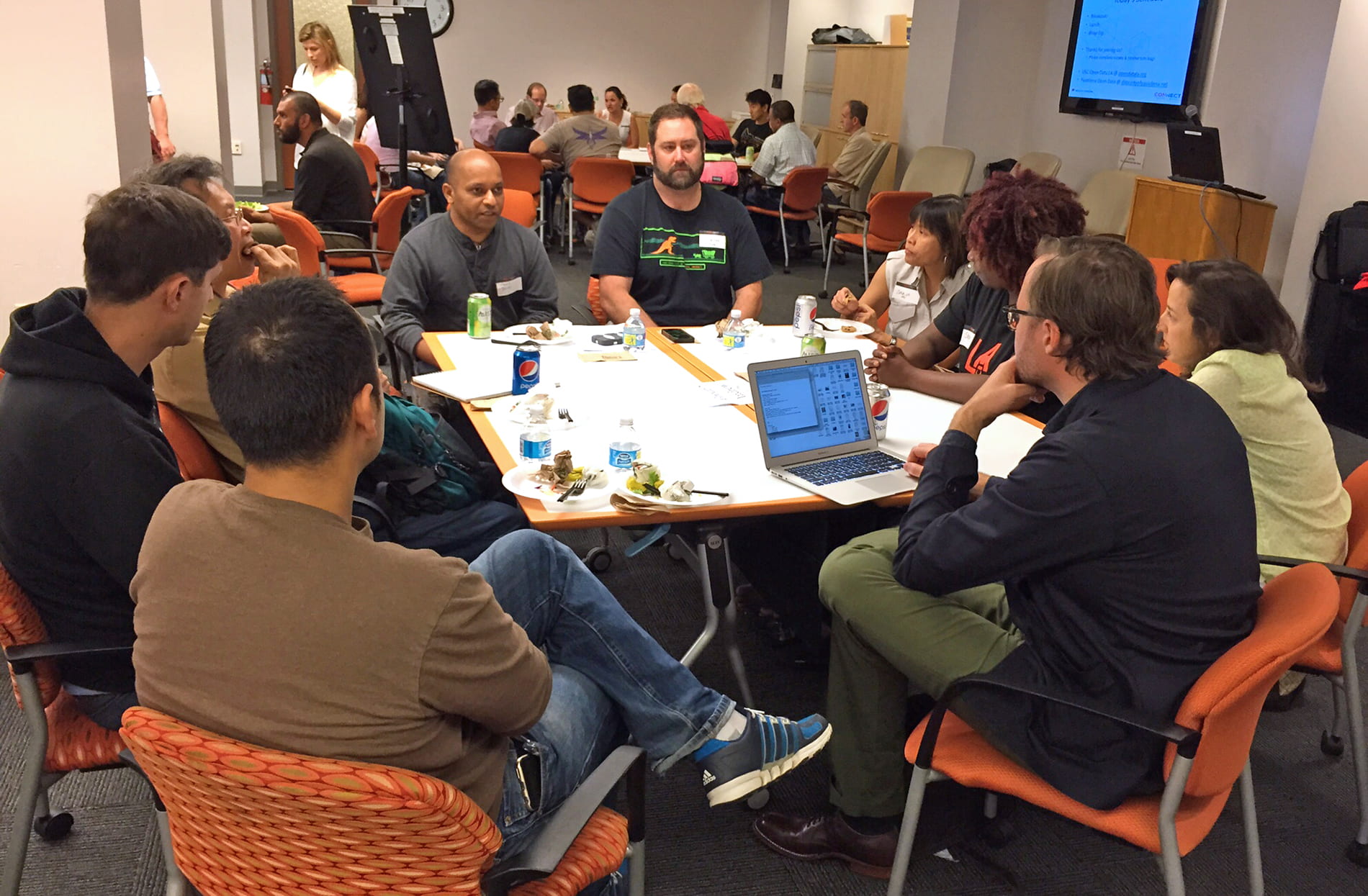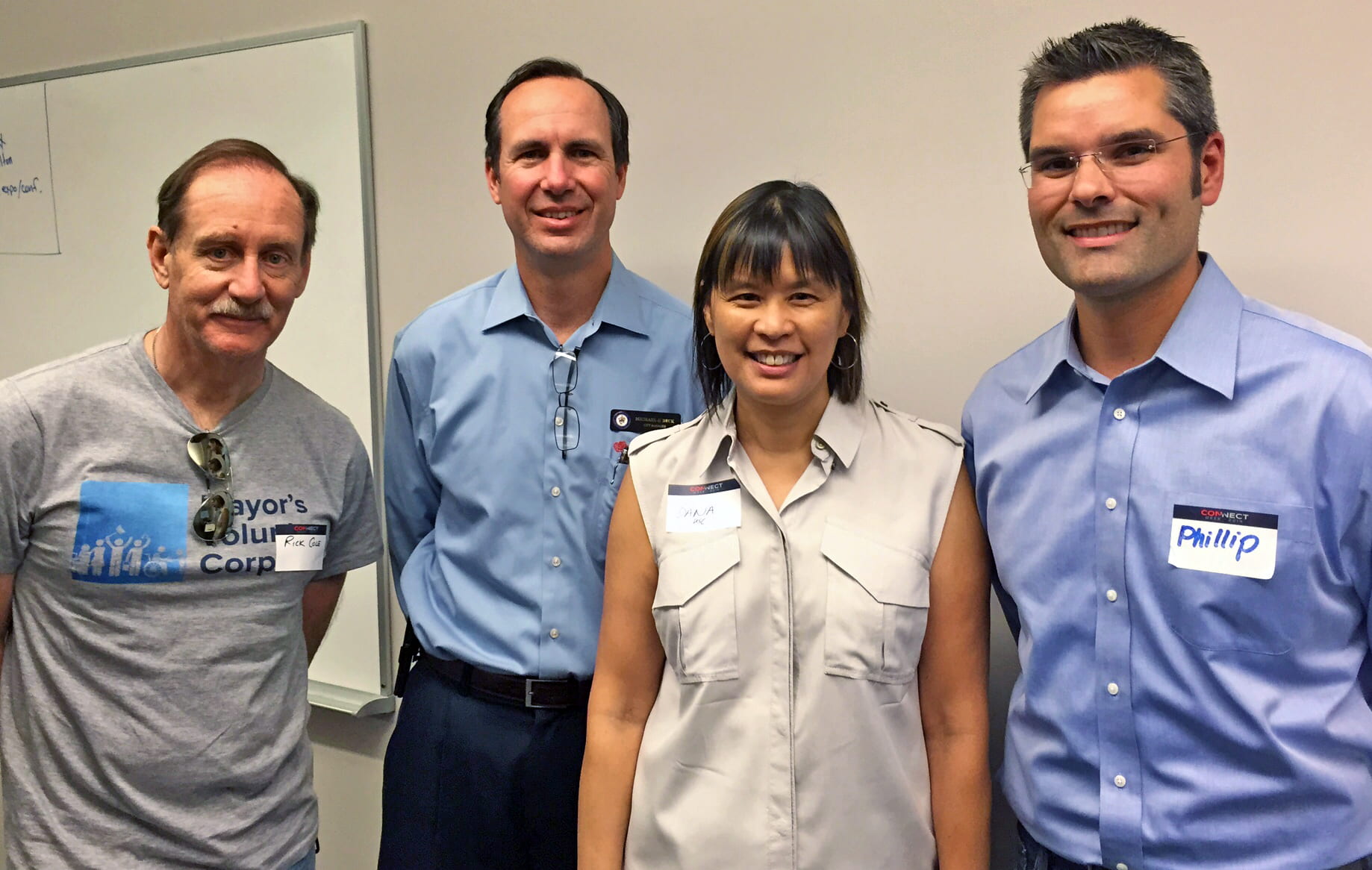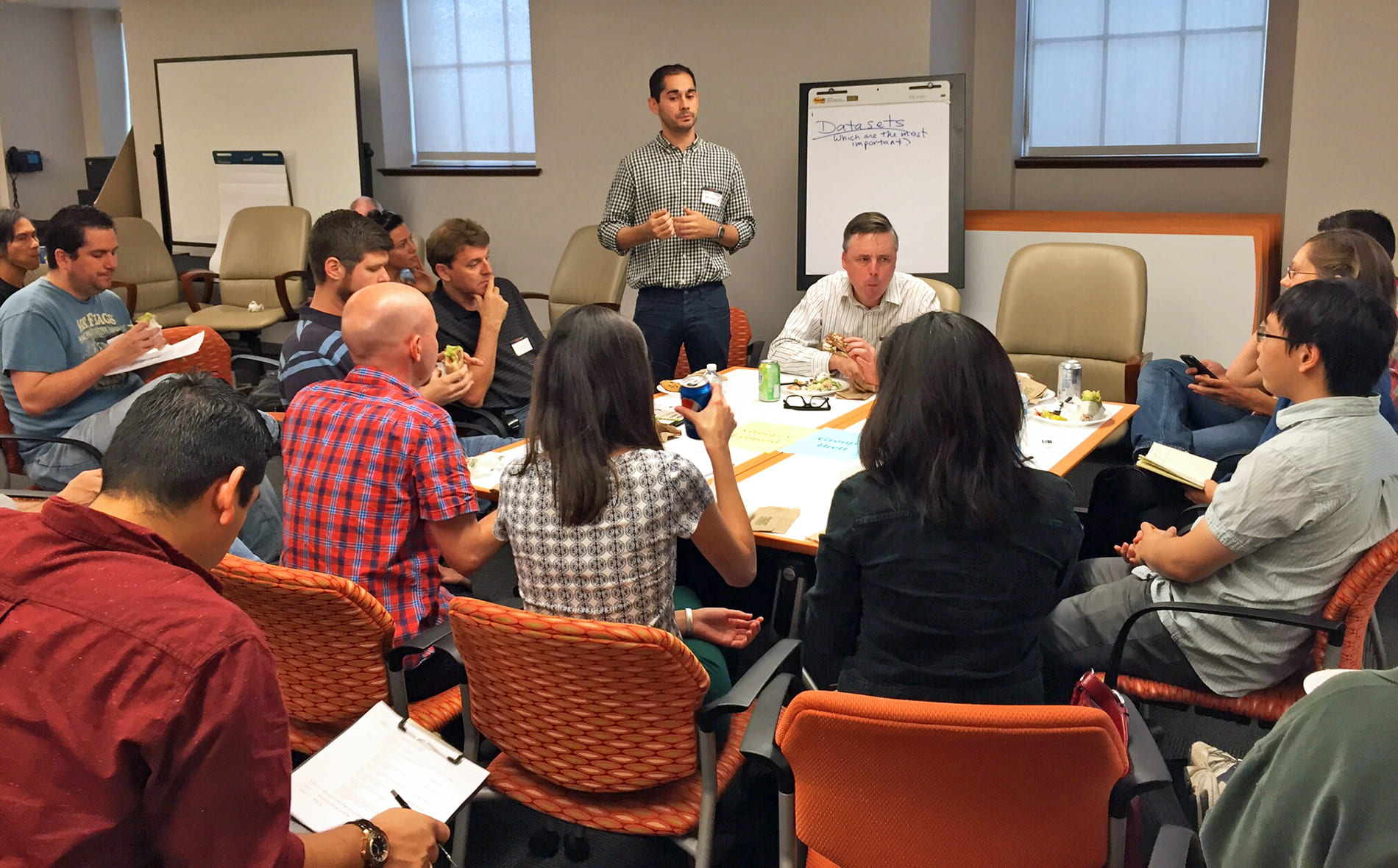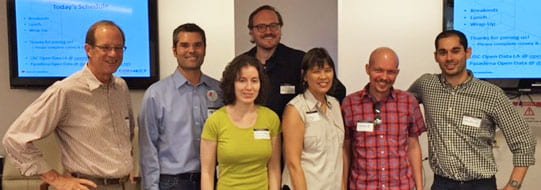City governments around the world have started to release public data sets (called “open data”) that can help communities and businesses address issues in areas such as transportation, healthcare, and economic development. CCLP’s Open Data LA team partnered with the City of Pasadena to host a workshop on October 25 for city officials, application developers, thought leaders, and interested citizens to form new connections and discuss the future of open data.

Titled Beyond Hackathons: What’s Next for Open Data in Pasadena?, the workshop focused on several discussion questions, including:
- Which city data sets are the most important?
- What are the elements that define transparency? What is the difference between transparency and open data?
- What is a successful hackathon? Should the City host another hackathon next Spring
Notable guests included Rick Cole, Deputy Mayor for Budget & Innovation for the City of Los Angeles, and Pasadena City Manager Michael Beck.

Left to right: Rick Cole, LA Deputy Mayor for Budget & Innovation; Michael Beck, Pasadena City Manager; Dana Chinn, CCLP faculty fellow; and Phillip Leclair, Pasadena Chief Information Officer
https://twitter.com/HackForPasadena/status/526085718951460864
Throughout the conversations, participants noted that one of the biggest barriers to open data initiatives and creating successful hackathons is the lack of collaboration between different cities, and even between departments within cities.
“There are a lot of assumptions about what data is actually available,” said one participant. “I thought everybody knows where [the data] is, but that’s not true.”
The groups also discussed the importance of data journalism as a bridge between city data portals and the general public. “In general, people are not used to looking at data sets,” said one software developer. “I don’t imagine that the average citizen will ever go into an open data portal and look for information.”
Others agreed that it will be up to journalists to interpret the raw city data and frame it within a larger context to illuminate the community issues most important to residents.

Open Data LA researcher Brett Shears leads a group discussion about which city data sets are the most useful for citizens
Working on fixing public parking thru city data @HackForPasadena #BeyondHackathons pic.twitter.com/egZXPQgUyD
— Beth Kuchar (@booleanjedi) October 25, 2014
Many participants highlighted the success of crowd-sourcing apps like See Click Fix, which enable citizens to notify their local government about problems in their neighborhoods, like potholes and broken street lamps. But for larger issues like education and transportation, more innovative solutions are needed to help citizens engage in an open dialogue with their local governments.

Left to right: Peter J. Robertson, USC Price School of Public Policy; Phillip Leclair, Liz Krane, CCLP Web & IT Coordinator; Andrew Schrock, USC Annenberg Ph.D candidate; Dana Chinn; Leonard Hyman, USC Price School of Public Policy alumnus; and Brett Shears
The Beyond Hackathons event was part of Innovate Pasadena’s Connect Week, a series of independently organized seminars, workshops, and social events unfolding in venues across the city of Pasadena throughout the week of October 20-26.
The USC Open Data LA team is conducing research on the current state of open data throughout L.A. County, using surveys and in-depth interviews to identify the key challenges that hinder open data initiatives in L.A. County’s 88 incorporated cities. Depending on funding support in the future, Open Data LA hopes to organize a conference for public officials and journalists to learn about open data and develop new partnerships.